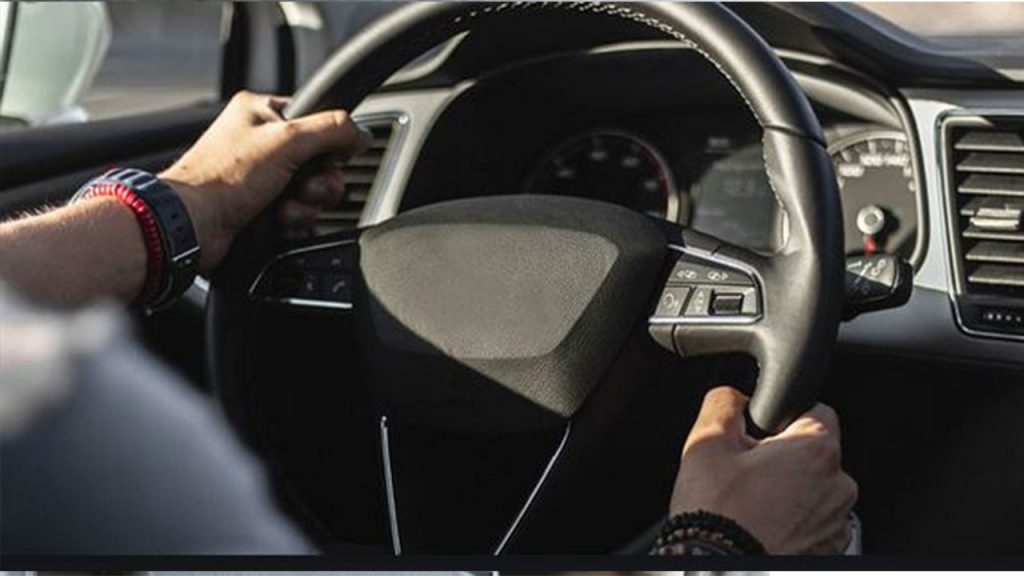Last updated on July 13th, 2023 at 04:51 pm
As technology advances, automakers incorporate new features into their vehicles, one of which is the electric parking brake, sometimes known as the electronic parking brake (EPB). EPB is now standard on a large number of current automobiles.
The EPB is a better, safer, and more effective braking system that works in conjunction with the onboard electronic computer to provide a better braking experience and a more convenient way to apply emergency brakes in various situations.
Throughout this article, I will go over the features of the Audi electronic parking brake, how it works, the advantages of having one on your baby ride, as well as the most common electric parking brake troubles. Sit back and listen to the narrative unfold.
- Read this Also: Is Brake Fluid Flammable
Keynote of this article:
- What is an electric parking brake, and how does it work?
- Applications for Audi electric parking brakes
- The Most Typical Issues with Electric Parking Brakes
- Benefits of Audi Electronic Parking Brakes
What is an Electric Parking Brake and How Does it Work?
The electronic parking brake (EPB), sometimes known as the electronic parking brake in North America, is an electronic emergency brake. It is usually engaged by depressing the brake pedal and drawing up the EPB button, and it is released by pressing a fingertip button.
An actuator mechanism and an electronic control unit work together to make this braking system work (ECU). EPB mechanisms such as caliper integrated systems and cable puller systems are now in production. Electric parking brakes are a subtype of brake-by-wire technology. (Can Brake Fluid Be Disposed Of With Oil?)
Audi Electric parking brakes initially emerged on the 2001 BMW 7 Series (E65) and have subsequently been found on various automobile brands.
Read: What Are The Gas Pedal And Brake Pedal Differences
Applications for Audi Electric Parking Brakes
As previously stated, an electric parking brake is a more improved and convenient way to deploy the emergency brake in various conditions.
Locate the EPB button and pull it up while depressing the brake pedal to engage the electric parking brake. You’ll hear a mechanical click when you pull it up, indicating that it’s been triggered. The emergency brake light will illuminate your instrument cluster after the EPB has been activated.
Step on the brake pedal and press the EPB button down to release or disengage the electric parking brake. The EPB will be deactivated when the emergency light on the instrument cluster turns off.
Note:
Without pushing the EPB button, there is another way to disengage the electric parking brake. It works in most Audi brands.
All you have to do now is fasten your seat belt and engage your emergency brake. The parking brake will automatically disengage when you depress the acceleration pedal while releasing the brake pedal. This is a quick overview of how parking brakes operate on Audi and how EPBs can be used.
The Most Typical Issues with Audi Electric Parking Brakes\Audi Electronic Parking Brake Problems
Audi Electronic Parking Brake Problems can develop if switches or cables between the actuator and module are opened, shortened, broken, or gain excessive resistance, just as they do on any other electrical system or component in an Audi car.
The electric parking brake system can malfunction due to low power or an open fuse.
If an issue is reported, some of these faults may cause the onboard computer to display a trouble code indicating a problem with the EPB or a ‘Service parking brake’ message. You can use a scan tool to help you find the root of the problem.
In any case, if a failed module or actuator causes the problem, you’ll need to contact your dealer to obtain a replacement. These components are relatively new, and their market has not yet been fully developed. However, these parts will be offered in various auto parts retailers as time passes.
One of the following factors could cause your Audi electric parking brake to fail to release manually or automatically.
- There is a problem with the brake pedal or the gear stick selector switch.
- One of the switches and the EPB module aren’t interacting correctly.
- The EPB module or actuator has an electrical problem.
- The electronic parking brake motor has jammed or failed.
- The cables on your parking brake are rusty. This is a common brake system problem on Audi vehicles.
If you own an Audi and notice a ‘service parking brake’ warning message on your dashboard, it could be a false alarm or a genuine system malfunction.
In the electrical system of the Audi, there is a vulnerable EPB module. In some situations, these alerts can be prompted by an electronic coolant flow valve or a bad ignition coil. Faults in the electrical harness might also cause similar problems.
You may love this too: Difference Between Dot3 & Dot4 Brake Fluid
Benefits of Audi Electronic Parking Brakes
1. Automation
Electric parking brakes and handbrakes are not the same things. When you press the EPB button, an electronic mechanism causes your car to come to a complete stop.
Because of the automated brake system, the EPB is more efficient and accurate than the typical emergency brake system. The Audi electric park brake works well on both the front and rear wheels.
Hill Start Assist is a feature that most modern electric parking brakes have and EPB effectiveness. On rough roads, a hill start assists automatically in applying brakes to the rear wheels to prevent rollbacks.
2. Brakes in case of an emergency
One of Audi’s electronic parking brakes’ main advantages is its ability to quickly activate brakes in an emergency. It has a safer braking system that allows you to accelerate while still using the electric parking brake.
An EPB system operates by opening and closing the back axle continuously until the vehicle comes to a complete stop. If you’re not sure when to use an electric parking brake, it’s while you’re driving at a slow or fast speed. The system is safer and more reliable than traditional brakes when traveling at high speeds.
When using manual brakes at high speeds, several complications can arise. The rapid friction may cause your tires to travel unevenly on the road, potentially resulting in a crash. The electric parking brake, on the other hand, is an exception.
3. Improved control
Electric parking brakes are more controllable than cable-operated parking brakes. The electronic parking brake has a distinct advantage over traditional brakes. They are more dependable and smooth.
4. It takes up less space.
It takes up less space in the car because there are no brake cables, wires, or hand brake levers. This also makes it superior to traditional brakes.
5. Locking system for children
To avoid accidents, it has a child lock feature. You won’t be able to disable the brake once the ignition is switched off if this option is enabled.
Conclusion on Audi Electronic Parking Brake Problems
The electronic parking brake is a welcome addition to modern cars since it provides better and more convenient than traditional brakes, particularly at high speeds and when parking. However, you may encounter frequent electronic parking brake issues as the system ages. Knowing how to solve these issues will save you time, energy, and stress.
Related: How To Fix A Parking Brake Malfunction BMW, BMW X5, 535i, X3, And Other Models
- Why Brake Lights Won’t Turn Off & the Brake Lights Stay on Honda Accord)
- How Can I Check My Brake Lights by Myself?
- Parking Brake Wire Bypass(Pioneer Parking Brake Bypass DIY)












